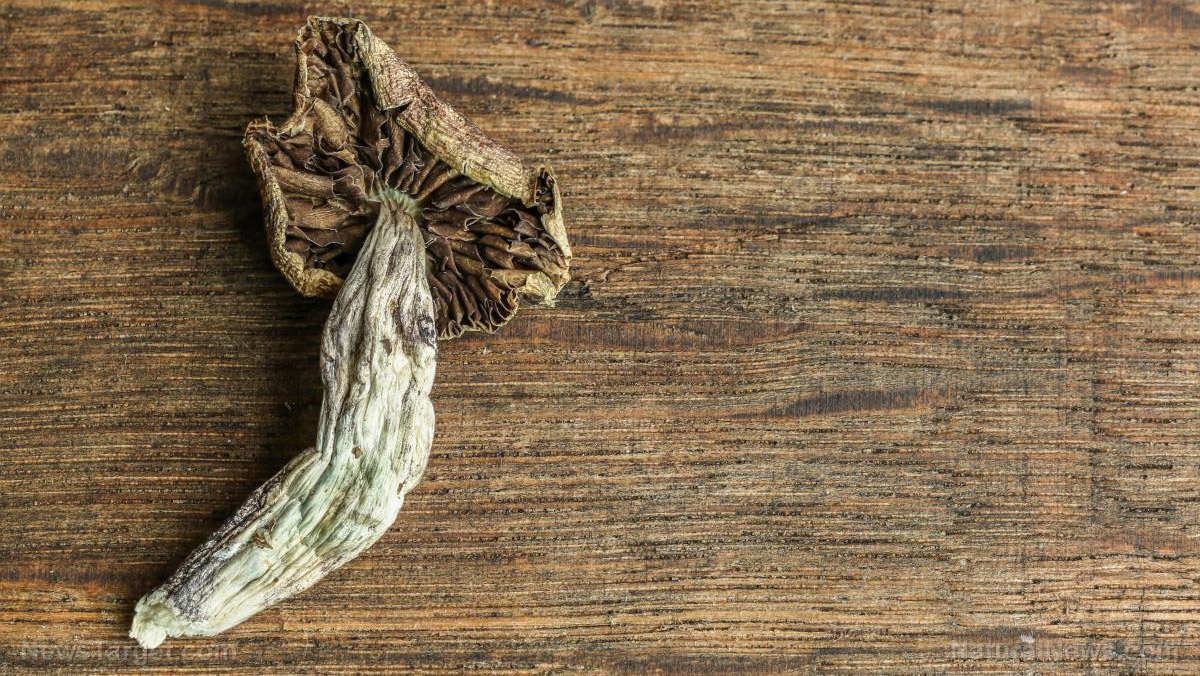Learn about brain health and nootropics to boost brain function
Magical medical mushrooms? Psychedelics have surprising health benefits, may be next big thing in treating addiction, depression


(Natural News) Psilocybin is an alkaloid found in what many people call “magic mushrooms.” Because of its psychedelic effects, the U.S. federal government labeled it a Schedule I drug in the 1970s, which means it has no medical value and a high potential for abuse. Today, a growing body of research shows that psilocybin mushrooms do have medicinal value — particularly in the treatment of mental illness and addiction. Cannabis also remains a Schedule I drug, even in spite of the overwhelming evidence supporting the plant’s multiple medicinal uses.
Initiatives to decriminalize magic mushrooms in Colorado and Oregon are also taking shape. Advocates want to remove criminal penalties for psilocybin possession and make it accessible to patients within the confines of a therapist’s office. We could be seeing the first legal psilocybin jurisdictions as soon as 2020.
Research shows magic mushrooms are medicinal
Due to the restrictions on Schedule I drugs, the body of research on psilocybin is small. Regardless, the medicinal value of magic mushrooms remains clear. A recent study led by the Beckley/Imperial Research Programmes found that psilocybin could dramatically reduce the symptoms of depression, specifically in cases where pharmaceuticals had failed. The team posited that one possible reason is that psilocybin helps to “reset” brain activity in neurological circuits associated with depression.
Researchers from Johns Hopkins have also demonstrated that psilocybin is an effective treatment for depression and anxiety in cancer patients. In their summary, the scientists state that magic mushrooms produced “substantial and sustained” decreases in patient depression and anxiety levels. The study authors wrote:
At 6-month follow-up, these changes were sustained, with about 80% of participants continuing to show clinically significant decreases in depressed mood and anxiety. Study participants attributed improvements in attitudes about life/self, mood, relationships, and spirituality to the high-dose experience, with >80% endorsing moderately or greater increased well-being/life satisfaction, which was further supported by community observer ratings showing corresponding changes.
As Healthline reports, a study from Johns Hopkins shows that psilocybin can also help curb addiction. Researchers found that magic mushrooms helped patients abstain from smoking over the course of a one-year follow-up period. Study leader Matthew Johnson, Ph.D. and associate professor at the School of Medicine, reportedly said that he believes psilocybin can be used to treat other substance addictions.
“The general idea is that the nature of these disorders is a narrowed mental and behavioral repertoire. So, [psilocybin] in well-orchestrated sessions [has] the ability to essentially shake someone out of their routine to give a glimpse of a larger picture and create a mental plasticity with which people can step outside of those problems,” Johnson told Healthline.
The power of the elements: Discover Colloidal Silver Mouthwash with quality, natural ingredients like Sangre de Drago sap, black walnut hulls, menthol crystals and more. Zero artificial sweeteners, colors or alcohol. Learn more at the Health Ranger Store and help support this news site.
Advocates pushing for legal psilocybin
There are two grassroots movements to make psilocybin more accessible and decrease related penalties. In Denver, Colorado, voters recently voted “no” on decriminalizing possession and use of magic mushrooms. It was the first bill to decriminalize psilocybin in the nation, and advocates say it is still a sign of things to come — even if it got vetoed the first time around. Kevin Matthews, organizer of Decriminalize Denver, said, “It’s not a loss, it’s a lesson.” According to Matthews, lots of people are getting tired of the government policing what they can and cannot put in their bodies.
In Oregon, citizens will be voting on their own psilocybin initiative in 2020. Wired reports that if the measure passes, “the state would develop a licensed psilocybin therapist industry and lower criminal penalties for growing or consuming mushrooms.”
The key here is that psilocybin would only be available through a therapist, and patients would be dosed in a controlled environment. Experts agree that while magic mushrooms may have medicinal value, they are much stronger than cannabis and should be taken cautiously to prevent an adverse reaction.
See more coverage of the latest news on plant medicine at CBDs.news.
Sources for this article include:
Click here to view full article